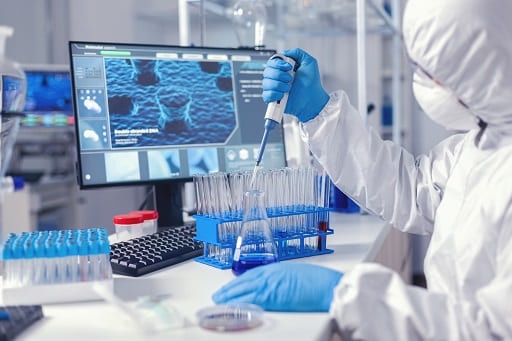Laboratory testing is a process that involves analyzing a sample of your blood, urine, or saliva to determine if you have an illness or disease. This type of analysis can be done on its own or as part of a more comprehensive diagnostic workup.
Why does it matter?
Laboratory tests are an important part of the diagnostic process because they help doctors identify what’s causing your symptoms so they can treat you properly. For example, if you have abdominal pain and nausea after eating certain foods (like dairy), but no other symptoms like vomiting or diarrhea; then your doctor may order bloodwork to check for lactose intolerance before prescribing medication for acid reflux disease (GERD).
Types of Laboratory Testing
There are many types of laboratory testing, and each one is used for different purposes.
Physical Testing: This type of testing is used to determine the physical properties of an object or substance. For example, you may want to know if something is magnetic or whether it melts at a certain temperature.
Chemical Testing: Chemical tests can be used to identify elements in a sample or determine whether an item contains chemicals that are harmful to humans or animals. For example, if you’re concerned about lead poisoning from your drinking water, you might want a chemical test done on the water sample before giving it to your children for drinking purposes (or just plain old drinking).
Biological Testing: Biological tests help determine whether something contains living organisms such as bacteria or viruses by examining how they react under certain conditions; this type of testing can also be used when determining whether food has gone bad due to contamination by harmful bacteria such as salmonella or E. coli. Biological testing can be done in a lab setting or at home using simple tools such as test strips or pH paper.
These tests can be performed on samples of blood, tissue, and other substances and some of the most common types of laboratory tests include:
- Blood tests: These tests can be used to measure levels of substances in the blood, such as sugar or cholesterol. They can also be used to check for infections and diseases.
- Tissue tests: Tissue samples can be taken from different parts of the body and examined for signs of disease or infection.
- Imaging tests: Imaging tests, such as X-rays, can be used to examine the body for signs of disease.
- Genetic tests: These tests can be used to check for genes that may be associated with diseases
There are several types of equipment used in laboratory testing, including balances and scales, centrifuges, cold storage equipment, fume hoods, hotplates and stirrers, incubators, microscopes, pH and electrochemistry meters, pumps and tubing, recirculating chillers, shakers, water purification systems, and many others. 1 Clinical laboratory testing can also utilize test kits, lab glassware, lab chemicals, eye wash solutions, gloves, apparel, diagnostic instruments, and supplies such as blood pressure monitors, thermometers, and defibrillators. The specific equipment used in laboratory testing depends on the type of test being performed and the industry in which the laboratory operates.
In the United States, laboratory testing on humans is regulated by the Centers for Medicare & Medicaid Services (CMS) through the Clinical Analytical Laboratory Improvement Amendments (CLIA). CLIA covers approximately 320,000 laboratory entities and sets standards for all laboratory testing to ensure the accuracy and reliability of patient test results. Laboratories that perform testing of human specimens for health assessment must comply with CLIA regulations. [^1] Therefore, laboratory testing is carried out by entities that adhere to CLIA regulations. Laboratories in the United States are required to follow CLIA regulations. These regulations include having a certified medical technologist (M.T.), or another licensed professional, on staff for every 10,000 tests performed each year.
In conclusion, there are a variety of different types of laboratory tests that can be performed. Each type of test can provide important information about a person’s health. It is important to speak with a medical professional to understand what a laboratory test result means.
Originally Published At: https://veritylabsltd.com/sb/types-laboratory-tests-what-they-mean/


No comments yet